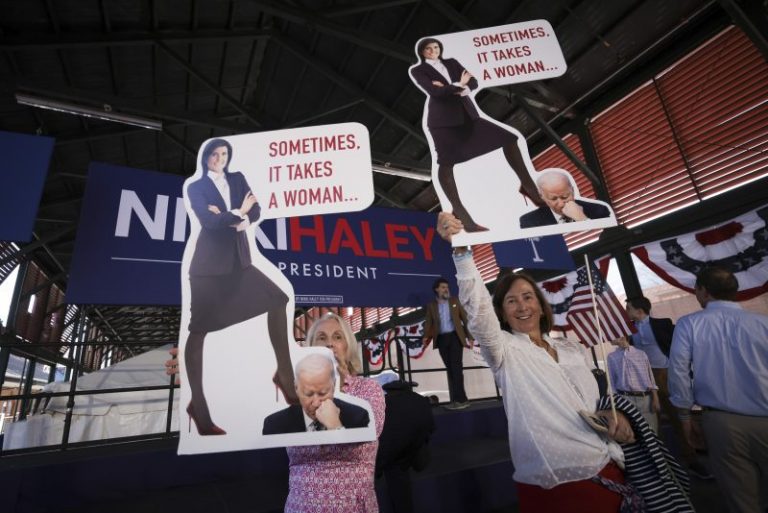Unintentionally, CNN’s Don Lemon offered former United Nations ambassador Nikki Haley a nice opening-week boost for her presidential campaign. Responding to Haley’s rhetoric about needing a new generation of leadership in Washington, Lemon opined on television about the distance between Haley and her own youth.
His comments — suggesting that Haley, at 51, was no longer at her “prime” — sparked an outcry. He later apologized for his comments, but not before Haley (and seemingly every other Republican-elected official and conservative commentator in the United States) had used his words to score rhetorical points of their own.
Haley’s offering on Twitter, buried amid dozens of retweets of similar posts, extrapolated from Lemon to the political left at large.
Liberals can’t stand the idea of having competency tests for older politicians to make sure they can do the job.
BTW it’s always the liberals who are the most sexist. pic.twitter.com/PzpniQFLff
— Nikki Haley (@NikkiHaley) February 16, 2023
By the way, she wrote, “it’s always the liberals who are the most sexist.” This rejoinder triggered another avalanche of commentary in the right-wing media, which Haley then retweeted. The system works.
Since we’re evaluating each other’s arguments, though, let’s evaluate that one. It is presumably not the case that Haley thinks only liberals are ever sexist; however optimistic her 51 years on this Earth have been, I suspect she has on at least one occasion encountered a sexist conservative. That’s particularly true because, when considering questions that get at people’s sexist inclinations, conservatives generally indicate more sexist opinions than liberals.
Consider two national surveys that are conducted every few years, the General Social Survey (GSS) and the American National Election Study (ANES). Each has questions aimed at evaluating views of the role of women in society and each reveals that conservatives have offered more regressive views both over time and recently. Since the 1970s, the number of people who hold views indicating sexism has declined. But, over that period, it is also the case that self-identified conservatives (from slightly to extremely conservative) have been more likely to hold those views.
In 1974, most conservatives said men were better-suited for politics than women. The gap between conservatives and liberals on that question was 28 points, more than twice the liberal value. In 2018, only 1 in 5 conservatives held that position, but that was still more than twice the percentage of liberals.
Something similar happens on a poll question about whether it’s better if men have careers and women stay home. The overall support for that idea has plunged — but more than a third of conservatives held that view in 2021, more than three times the percentage of liberals.
I mean, this is to some extent what conservative means in common parlance. It means an embrace of old-fashioned gender roles, so it’s not surprising that we see this divide.
Some might argue that this is not a direct measure of sexism. I would disagree, but it is beside the point. In the ANES survey from 2020 we have results that get closer to the idea on which Haley was offering judgment.
For example, conservatives are 18 points more likely to say that women interpret innocent remarks or acts as sexist. They are 13 points more likely to say women want to control men to get power. They are also 13 points more likely to say that requests for “equality” are actually requests for “special favors.”
Those are assessments not of how gender has been viewed but of how women act and their intentionality. In each case, conservatives are significantly more likely to hold views that cast women in a negative light.
There’s one more question from the ANES that speaks both to Haley’s rebuttal to Lemon and to her actual candidacy.
Asked if it was very or extremely important for women — more than half of the population — to be elected to office, about three-quarters of liberals said it was. Only 1 in 5 conservatives agreed.
Maybe not what Haley would call “sexism,” but probably also not exactly what she’s hoping for from fellow conservatives.

